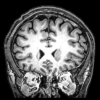I have suffered from very severe chronic insomnia for more than a decade but I reached the boiling point last summer when I was on a lowish carb diet (autoimmune paleo specifically) and after about 2 weeks stopped sleeping completely.
It's somewhat detailed in this thread: Link
What I attributed coming out of it was much more carbs (learning about their role in serotonin production) and/or MCT oil. Since then I have had good nights and bad nights, but have been optimistic because I've had success eating a lot of protein earlier in the day, or sometimes in the evening, and then eating something sweet about an hour later for an insulin response and to shuttle the competing amino acids into the muscles and get the tryptophan in the brain. I've always viewed this a short-term strategy and want to try ketosis badly for my metabolic issues.
I got the flu last week and the same exact type of insomnia started up: zero sleep and zero sleep pressure, meaning I have no tiredness or desire to lay down. I took some magnesium and theanine on the 3rd or 4th night and stretched to lower substance P and then took Doxylamine Succinate 25 mg. I slept 4 hours then woke up and slept another few hours broken. The next night I slept again, similar pattern. The following night, it started up again, like a car that won't start (no sleep pressure) and I have not slept the last 2 nights.
I know my brain is messed up, to the say the least, I'm just wondering why the flu sent me back to hell. Any suggestions or feedback would be very much welcomed.

















































